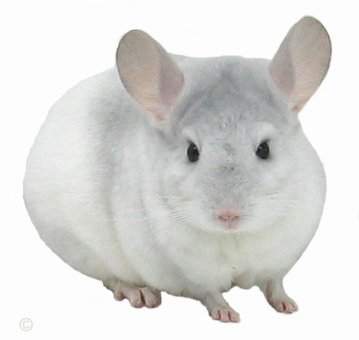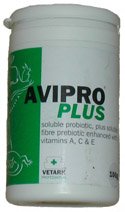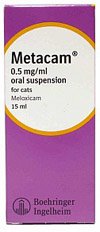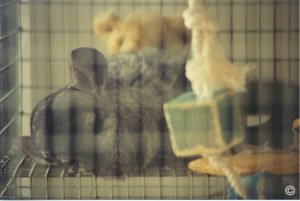 There are some reasons for castrating (neutering) a male chinchilla and the most obvious reason being the prevention of chinchilla kits. Castration/neutering is also used on male chinchillas that show aggression and as a treatment against certain diseases such as testicle cancer.
There are some reasons for castrating (neutering) a male chinchilla and the most obvious reason being the prevention of chinchilla kits. Castration/neutering is also used on male chinchillas that show aggression and as a treatment against certain diseases such as testicle cancer.
There is much controversy surrounding chinchilla castration/neutering and whether it is safe for a chinchilla due to the anaesthetic and type of procedure needed. As with any operation or anaesthetic there is always a risk of infection or death but providing you choose an experienced exotic veterinary surgeon, that has preformed chinchilla castration/neutering previously, there should be no problem with the actual anaesthetic and procedure itself. It is mainly down to the pre-surgery and post-surgery care that complications can arise and this is mainly due to the chin owners inexperience of post operative care or lack of good husbandry.
Male Chinchilla Reproductive Anatomy
The testes of a male chinchilla are considered incomplete as they have no true scrotum and the sex organs are somewhat different from most other mammals. The testes do not descend down into the scrotum but are lateral to the penis and located in the groin area. The tail of the epididymis is located lateral to the anus and the testes occupies an inguinal position. A 'fat body' projects from each testes into the abdominal cavity and the urethra passes caudally through the pelvis becoming ensheathed in the ischiocavernosus muscles that control the movement of the penis and pelvic floor. The urethra then continues out of the pelvis and into the penis, which is tubular and blunt ended, pointing caudally in an 'S' shape when relaxed. A small bone about 1cm long supports the penis during copulation. The sperm cells mature in the epididymis before they move to the sperm duct, and from there move across the mesentery of the urinary bladder. the sperm ducts open right next to each other into the urethra, along with the openings of the other sex glands.
Castration/Neutering Pre-Operative Care
 Before any castration/neutering procedure it is of great importance to ensure the chinchilla is in good health, well rested and is fully hydrated before entering into an anaesthetic. Respiratory fluid losses during drying gaseous anaesthetic procedures are much greater than in other larger animals and putting a dehydrated chinchilla through an anaesthetic will cause further dehydration and sever complications. Under anaesthetic a chinchilla's respiratory rate slows and the respiratory secretions become more tenacious therefore a chinchilla must be of optimum health! If you think a chinchilla has a cold, respiratory infection or any other underlying illness, you must postpone an operation (unless it is life threatening) until a chinchilla has returned to its normal healthy state. There is no need to starve a chinchilla before an operation as doing so for long periods of time will lead to hypoglycemia and gut statis. Saying this it is not wise to feed a chinchilla any treats or force feed before an operation to ensure the chinchilla has a relatively empty stomach thus reducing the pressure on the diaphragm.
Before any castration/neutering procedure it is of great importance to ensure the chinchilla is in good health, well rested and is fully hydrated before entering into an anaesthetic. Respiratory fluid losses during drying gaseous anaesthetic procedures are much greater than in other larger animals and putting a dehydrated chinchilla through an anaesthetic will cause further dehydration and sever complications. Under anaesthetic a chinchilla's respiratory rate slows and the respiratory secretions become more tenacious therefore a chinchilla must be of optimum health! If you think a chinchilla has a cold, respiratory infection or any other underlying illness, you must postpone an operation (unless it is life threatening) until a chinchilla has returned to its normal healthy state. There is no need to starve a chinchilla before an operation as doing so for long periods of time will lead to hypoglycemia and gut statis. Saying this it is not wise to feed a chinchilla any treats or force feed before an operation to ensure the chinchilla has a relatively empty stomach thus reducing the pressure on the diaphragm.
It is essential for the successful recovery of any operation that a chinchilla be as stress free as possible - that is before, during and post operation. Only take the male to the veterinary surgery when the operation is due as a chinchilla that has to remain in a veterinary surgery for a long period of time will suffer stress and longer recovery time. Preferably a chinchilla should not remain at a veterinary surgery any longer than 4 hours.
Castration/Neutering Procedures
There are two different techniques associated with chinchilla castration/neutering and with both techniques the chinchilla must be placed in the supine position and two incisions approximately 10-15mm long made into the scrotal skin, parallel to the penis. This loosens the retaining testicle, which is firmly attached to the subcutaneous tissue and situated either side of the male's penis.
- Closed Castration/Neutering Technique - The testes are removed and the inguinal canal is partially stitched (to allow the passing of main arteries and veins).
- Open Castration/Neutering Technique - The testes are removed and the inguinal canal is not stitched.
Common Castration/Neutering Complications:
-
Maintenance of core body temperature during the castration/neutering procedure. This is primarily due to a chinchilla's increased surface area to volume ratio, allowing more heat to escape per gram of animal.
-
Infections caused by poor husbandry and dirty cages.
-
Abscesses can form on any part of the operated area and is generally exposed with pus. Urgent medical intervention is needed with the use of antibiotics and regular flushing of the area with a saline solution.
-
A Hernia can develop both during the surgery or post operation from mishandling, jumping and placing stress on the operated area.
Post Operative Care
 Whilst a chinchilla is having an operation, it is of great importance to completely disinfect the cage environment and sterilize toys and accessories. This will help prevent castration/neutering infections and also allow the recovering chinchilla some peace as to not be disturbed with daily cleaning duties. If a male has just been castrated/neutered it is a good idea to place only essential items in the cage to ensure there is no clutter to knock against the operated area and ensure there is something soft for him to rest on such as a towel or blanket. It is best to house a recovering male in a single story to prevent jumping or block any area within the current cage that can cause injury when the male becomes more active. Place a large sheet over the cage to add extra privacy and leave a small observational peep hole.
Whilst a chinchilla is having an operation, it is of great importance to completely disinfect the cage environment and sterilize toys and accessories. This will help prevent castration/neutering infections and also allow the recovering chinchilla some peace as to not be disturbed with daily cleaning duties. If a male has just been castrated/neutered it is a good idea to place only essential items in the cage to ensure there is no clutter to knock against the operated area and ensure there is something soft for him to rest on such as a towel or blanket. It is best to house a recovering male in a single story to prevent jumping or block any area within the current cage that can cause injury when the male becomes more active. Place a large sheet over the cage to add extra privacy and leave a small observational peep hole.
A male chinchilla that has just been castrated/neutered will be sore and in a considerable amount of pain after the surgery. It is wise to ask a veterinary surgeon to provide a pain relief after the operation if he/she has not already done so and also to provide a further course for 5-7 days. Surveys have shown that chinchillas who receive a pain relief such as Metacam before leaving the surgery and then as a daily medication for 5 days post op have a quicker recovery rate due to less pain and stress felt by the chinchilla.
It is essential that a chinchilla drinks after an operation and a small treat of watered down sugar-free cranberry juice will be a very welcomed treat.
During the first 24-48 hours optimum care should be provided to the chinchilla to aid speedy recovery. You should add a probiotic to the water system to ensure bad bacteria does not accumulate in the digestive system due to stress and the effects from the anaesthetic or pain killers and do not feed any treats - just a fresh water bottle, a handful of coarse hay and 2 tablespoons of pellets made for chinchillas only! The dust bath must be removed until the stitches have healed usually 7-10 days.
 Allow the male complete rest on its return and for the next 24 hours. Do not try handling the male during the first 48 hours after which you must check the operation site to ensure it is healing properly and no castration infection is developing. Any redness or swelling should be gone within 48 hours and the stitches should look clean. Keep a continual eye on the stitches until they are fully healed and if you notice any abnormalities or have any concerns over the way a chinchilla is healing then it is paramount that you take the male to the veterinary surgeon for further examination and potentially a course of antibiotics.
Allow the male complete rest on its return and for the next 24 hours. Do not try handling the male during the first 48 hours after which you must check the operation site to ensure it is healing properly and no castration infection is developing. Any redness or swelling should be gone within 48 hours and the stitches should look clean. Keep a continual eye on the stitches until they are fully healed and if you notice any abnormalities or have any concerns over the way a chinchilla is healing then it is paramount that you take the male to the veterinary surgeon for further examination and potentially a course of antibiotics.
All chinchillas are different and it wont take long for most to return to their normal behavior. When it is time for outside cage activity, ensure the area the male is allowed to explore has no levels to preventing jumping and extra stress onto the operation site, which can cause a hernia - a closed hallway is a great location for a male just after neutering
After 2 weeks a chinchilla has usually recovered from a castration and you will notice fur regrowth around the operation site - this is a clear sign the male is healing accordingly but caution must still be maintained for two reasons:
- The male can still impregnate the female for up to 8 weeks after the castration/neutering operation.
- The wounds will still be healing internally for the next 3 months and any great stress to the operation area will cause a hernia!
Further Reading Relating To Chinchilla Castration/Neutering:
Breeding Chinchillas, Chinchilla Anatomy, Chinchilla Care, Chinchilla Kits, Chinchilla Health, Examining A Chinchilla, Holding a Chinchilla, Home Remedies And Safe Medications, Introducing Chinchillas, Pregnancy.


 There are some reasons for castrating (neutering) a male chinchilla and the most obvious reason being the prevention of chinchilla kits. Castration/neutering is also used on male chinchillas that show aggression and as a treatment against certain diseases such as testicle cancer.
There are some reasons for castrating (neutering) a male chinchilla and the most obvious reason being the prevention of chinchilla kits. Castration/neutering is also used on male chinchillas that show aggression and as a treatment against certain diseases such as testicle cancer. Before any castration/neutering procedure it is of great importance to ensure the chinchilla is in good health, well rested and is fully hydrated before entering into an anaesthetic. Respiratory fluid losses during drying gaseous anaesthetic procedures are much greater than in other larger animals and putting a dehydrated chinchilla through an anaesthetic will cause further dehydration and sever complications. Under anaesthetic a chinchilla's respiratory rate slows and the respiratory secretions become more tenacious therefore a chinchilla must be of optimum health! If you think a chinchilla has a cold, respiratory infection or any other underlying illness, you must postpone an operation (unless it is life threatening) until a chinchilla has returned to its normal healthy state. There is no need to starve a chinchilla before an operation as doing so for long periods of time will lead to hypoglycemia and gut statis. Saying this it is not wise to feed a chinchilla any treats or force feed before an operation to ensure the chinchilla has a relatively empty stomach thus reducing the pressure on the diaphragm.
Before any castration/neutering procedure it is of great importance to ensure the chinchilla is in good health, well rested and is fully hydrated before entering into an anaesthetic. Respiratory fluid losses during drying gaseous anaesthetic procedures are much greater than in other larger animals and putting a dehydrated chinchilla through an anaesthetic will cause further dehydration and sever complications. Under anaesthetic a chinchilla's respiratory rate slows and the respiratory secretions become more tenacious therefore a chinchilla must be of optimum health! If you think a chinchilla has a cold, respiratory infection or any other underlying illness, you must postpone an operation (unless it is life threatening) until a chinchilla has returned to its normal healthy state. There is no need to starve a chinchilla before an operation as doing so for long periods of time will lead to hypoglycemia and gut statis. Saying this it is not wise to feed a chinchilla any treats or force feed before an operation to ensure the chinchilla has a relatively empty stomach thus reducing the pressure on the diaphragm. Whilst a chinchilla is having an operation, it is of great importance to completely disinfect the cage environment and sterilize toys and accessories. This will help prevent castration/neutering infections and also allow the recovering chinchilla some peace as to not be disturbed with daily cleaning duties. If a male has just been castrated/neutered it is a good idea to place only essential items in the cage to ensure there is no clutter to knock against the operated area and ensure there is something soft for him to rest on such as a towel or blanket. It is best to house a recovering male in a single story to prevent jumping or block any area within the current cage that can cause injury when the male becomes more active. Place a large sheet over the cage to add extra privacy and leave a small observational peep hole.
Whilst a chinchilla is having an operation, it is of great importance to completely disinfect the cage environment and sterilize toys and accessories. This will help prevent castration/neutering infections and also allow the recovering chinchilla some peace as to not be disturbed with daily cleaning duties. If a male has just been castrated/neutered it is a good idea to place only essential items in the cage to ensure there is no clutter to knock against the operated area and ensure there is something soft for him to rest on such as a towel or blanket. It is best to house a recovering male in a single story to prevent jumping or block any area within the current cage that can cause injury when the male becomes more active. Place a large sheet over the cage to add extra privacy and leave a small observational peep hole. Allow the male complete rest on its return and for the next 24 hours. Do not try handling the male during the first 48 hours after which you must check the operation site to ensure it is healing properly and no castration infection is developing. Any redness or swelling should be gone within 48 hours and the stitches should look clean. Keep a continual eye on the stitches until they are fully healed and if you notice any abnormalities or have any concerns over the way a chinchilla is healing then it is paramount that you take the male to the veterinary surgeon for further examination and potentially a course of antibiotics.
Allow the male complete rest on its return and for the next 24 hours. Do not try handling the male during the first 48 hours after which you must check the operation site to ensure it is healing properly and no castration infection is developing. Any redness or swelling should be gone within 48 hours and the stitches should look clean. Keep a continual eye on the stitches until they are fully healed and if you notice any abnormalities or have any concerns over the way a chinchilla is healing then it is paramount that you take the male to the veterinary surgeon for further examination and potentially a course of antibiotics.